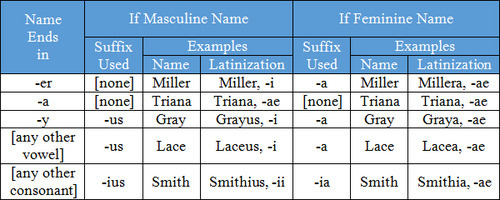Etymology: The Latinization of Modern Surnames for Species Names (July 29th)
Post by: Diaphanus
Approved by: Lana
Many scientific names honor people by means of Latinized versions of their names. The species-name parts of these names, when nouns, are genitive singular forms of these Latinizations. For example, the scientific name of the annual phlox, Phlox drummondii, contains the genitive singular form of Drummondius, the Latinization of the surname of the botanist Thomas Drummond. In this post, I shall give some information about modern names used this way.
I must point out right away that there is no absolutely right way to Latinize non-Roman names. However, there are general guidelines that have been followed by learned Latin writers for several hundred years. What I will be talking about here mainly pertains to a pair of relevant suffixes.
Although some people translated surnames directly into Latin or Latinized Greek (e.g. Melanchthon for Schwartzerdt), others Latinized surnames using the suffixes -(i)us for masculine names and -(i)a for feminine names. These are properly adjectival suffixes, and although they create adjectives, the words can be used as nouns for names of people.
The most interesting thing about these suffixes is that they are the same ones used to form the names of the various Roman noble houses (gentes). The suffixes were added to the base of the given name of the real or supposed original head of the house. So, for example, Iulus, the son of the Trojan hero Aeneas, supposedly provided the name of the Gens Iulia thus: Iulus + -ius, -ia = Iulius, Iulia. Thus, Drummonius, named after a real or supposed original head of the Drummond family, was formed analogously to the formation of the Iulius in Gaius Caesar’s name.
The chart below shows how these suffixes tend to form Latinized versions of modern names. Sometimes the suffixes are shortened to -us and -a to avoid extraneous vowels. Some names do not take these suffixes at all because their forms are already friendly to Latin.

(In the “Latinization” parts, the nominative singular forms are shown and the genitive singular forms are indicated by -i, -ii, and -ae.)
Additional changes are made to certain names, but they are of no concern to me here. What is important is how these suffixes are used to honor a person by according his or her name the same treatment originally accorded only to surnames of patrician and noble Roman families.
Sources
- Botanical Latin, William T. Stearn;
- “Orthography of Names and Epithets: Latinization of Personal Names,” Dan H. Nicolson.

